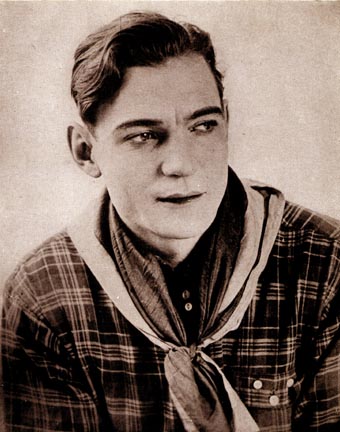P.S. She also now thinks Buck Jones is a hottie!


Hiya Mr. Movieman....movieman1957 wrote:I watched "The Long Gray Line" yesterday
movieman1957 wrote:What do you feel might be the "avant garde" touches that Ford used? I'm not sure I saw that but wonder if there was something that caught me but would classify it as something else.
movieman1957 wrote:It seems do have been done with a great deal of affection. His working of the academy, both physically and emotionally, makes an important part of the story.
I'm inclined to think, based on Moira's, comments that there is very little to do from a women's perspective as Maureen is the only real female here but she is important to Marty's character. She becomes the "woman of the house" not only to Marty but his father and brother as well.
moirafinnie wrote:Miss G--
Your comments on the avante-garde elements in Ford's later work interests me, though I would contend that these expressionistic aspects of his work were always present--going back at least to The Lost Patrol (1934), a movie that could easily have had Samuel Beckett as screenwriter.
In any case, I'd love to see any screen captures you might feel like putting on display.
Do you think that Ford's ambivalence about the way his manly characters lived was something he was entirely comfortable about expressing? Was he exploring these themes consciously in all his films?
Was he constantly trying to balance the commercial needs of his business with his interest in certain themes? Or did he not give a hoot by the '60s?
Many people feel that John Ford's movies are not truly about the men, but about the women characters. What do you think?
movieman1957 wrote:Betsy Palmer does play a bigger role later in the film because she partly becomes the conscience of that part of the film and the futility, sometimes, of war. She has lost her husband and though she doesn't like it her son will grow up to go to the academy and eventually to war. The loss of husband brought home as the son is sent away. She clearly has a role in playing the other side of the equation, if you will. If she is not there then there can be no discussion of the emotional side other than what Marty shows for the boys he has lost. The boys no their duty and will go with no discussion.
Do you think the death of Marty's own son makes him take the boys on more as his own? I do. At first because I think Maureen puts in his head but after awhile it becomes his way.
mrsl wrote:Wow, I hope you guys don't mind me jumping in here because I DO feel this is one of Fords better works. I usually think of him as a Western director, but there are all those war films, and things like The Quiet Man, and How Green was my Valley also, then along comes The Long Grey Line. I see this as a kind of military Goodbye Mr. Chips with a green novice starting out and growing into a beloved icon of the institution.
I don't see him as a failure at all because in most cases his wife or father are there for support, except perhaps the swimming instructor, which was a great bit of comic relief. As for selling cars, he didn't really fail, it's just that 'ahhhhh Mary O'Donnell' missed life at the academy. Just as Greer Garson started the tradition of Sunday afternoon tea with the students, Maureen started weekly ice-box raids.
Because their own baby son died, Marty and his wife both thought of all the cadets as 'their boys'. The cadets went to them for advice and help and when Marty finally understood the reasons for the self discipline, the academy became even more important to him.
The long quiet, reflective walks, no matter if around the cannons, or the magnificent gravestones, were what most people do when they have some question to deal with, or the demands and duties imposed by others. I'm not sure I understand you use of avant garde here, so I may misunderstand your meaning.
I love Da (Donald Crisp), here as a self-serving little bandy-cock, but he was right when he did open up and say some things. And after all he was just being the patriarch of the family as they all thought of him.